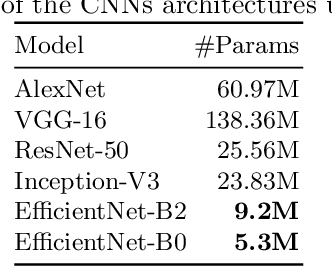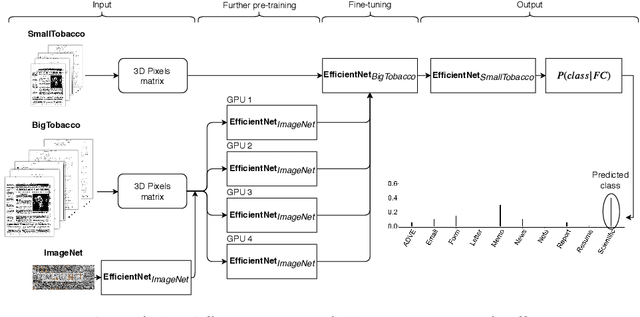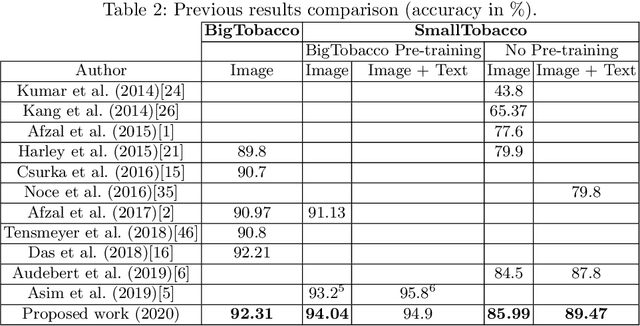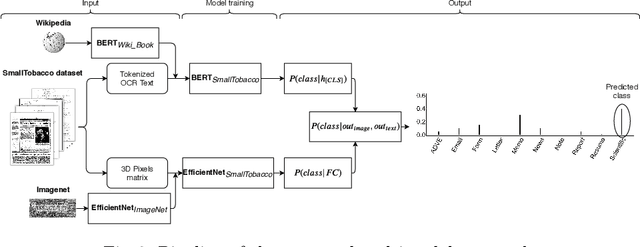Improving accuracy and speeding up Document Image Classification through parallel systems
Paper and Code
Jun 16, 2020



This paper presents a study showing the benefits of the EfficientNet models compared with heavier Convolutional Neural Networks (CNNs) in the Document Classification task, essential problem in the digitalization process of institutions. We show in the RVL-CDIP dataset that we can improve previous results with a much lighter model and present its transfer learning capabilities on a smaller in-domain dataset such as Tobacco3482. Moreover, we present an ensemble pipeline which is able to boost solely image input by combining image model predictions with the ones generated by BERT model on extracted text by OCR. We also show that the batch size can be effectively increased without hindering its accuracy so that the training process can be sped up by parallelizing throughout multiple GPUs, decreasing the computational time needed. Lastly, we expose the training performance differences between PyTorch and Tensorflow Deep Learning frameworks.
 Add to Chrome
Add to Chrome Add to Firefox
Add to Firefox Add to Edge
Add to Edge